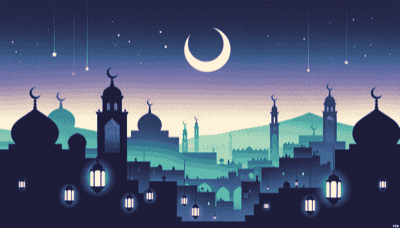We're here to help you keep count of the days to or since a date. Just click the button below and enter your chosen date to get started. Also choose the suggested days or search for a special day above #countingthedays

The Day:
Ramadan is the ninth month of the Islamic lunar calendar and is considered the holiest month for Muslims worldwide. In Morocco, as in other Muslim-majority countries, the start of Ramadan is determined by the sighting of the new moon, which leads to slight variations in its commencement each year.
History:
The significance of Ramadan stems from the belief that during this month, the Quran was first revealed to Prophet Muhammad. The history of observing Ramadan goes back over 14 centuries and involves fasting, prayer, reflection, and community.
Traditions:
During Ramadan in Morocco:
Fasting (Sawm): From dawn to sunset, Muslims abstain from food, drink, smoking, and marital relations. The pre-dawn meal is known as "Suhoor," while the meal that breaks the fast after sunset is called "Iftar."
Taraweeh Prayers: Special nightly prayers are performed where longer portions of the Quran are recited.
Charity (Zakat): Acts of charity and almsgiving are emphasized more during this month.
Family Gatherings: Families often gather to break their fast together with Iftar being a communal meal.
What People Do on This Day:
Moon Sighting: People look for the new moon or wait for an announcement from religious authorities to confirm the beginning of Ramadan.
Spiritual Preparation: Many engage in personal reflection and set intentions for the coming month.
Culinary Preparations: Traditional foods are prepared for Suhoor and Iftar; in Morocco, popular dishes include Harira (soup), Chebakia (sesame cookies), and dates.
Shopping: There’s often a rush to buy supplies and special foods before Ramadan starts.
Moroccans observe these practices with great devotion while embracing their unique cultural customs that have been passed down through generations.